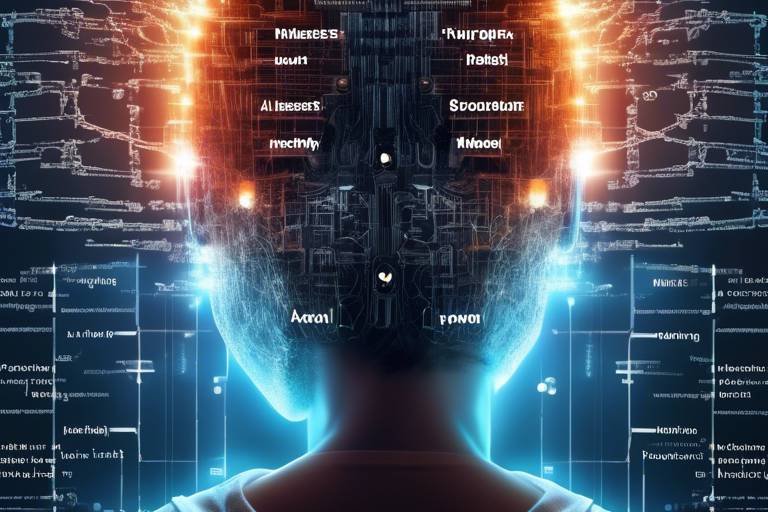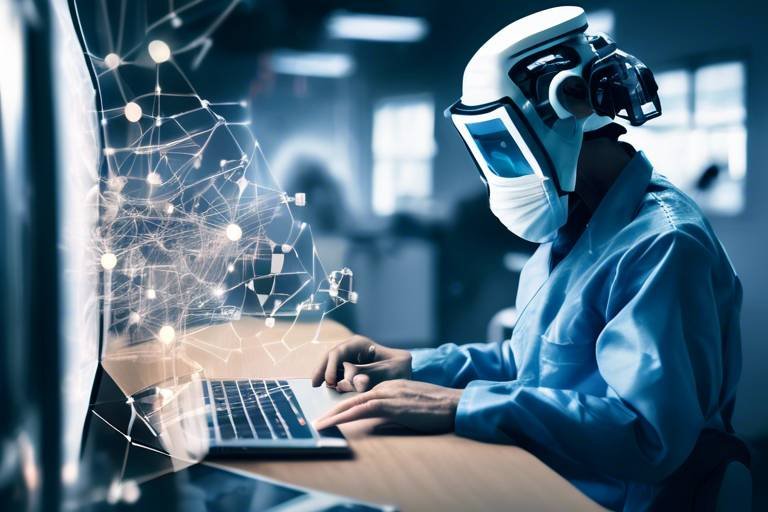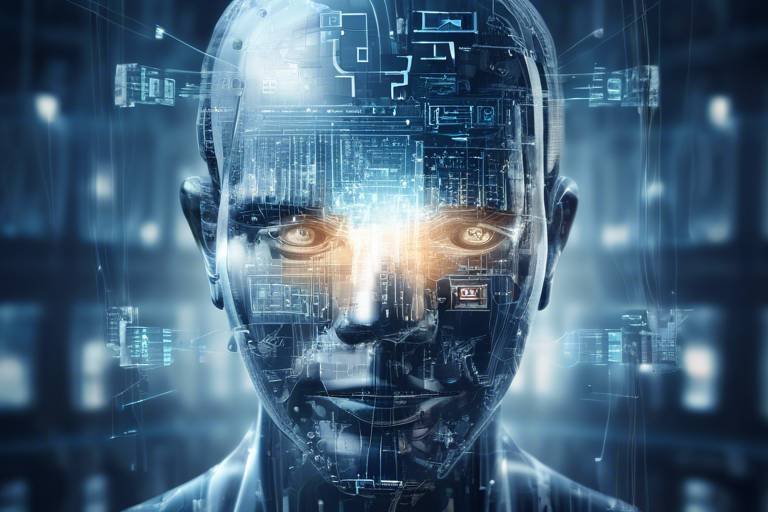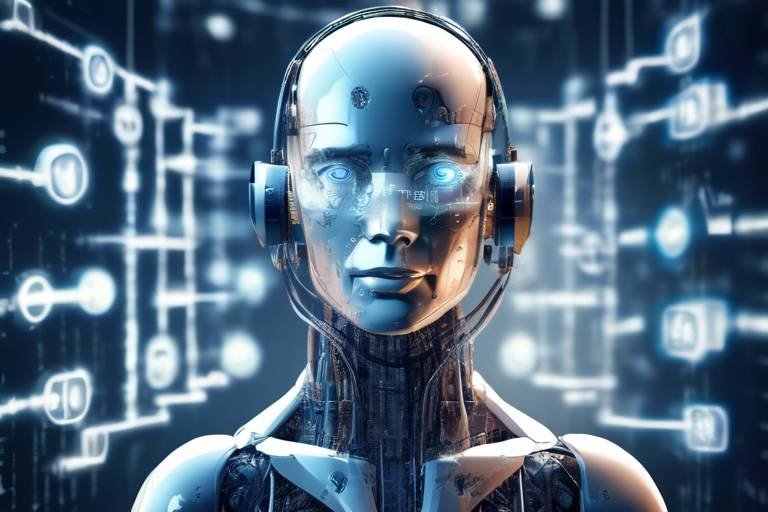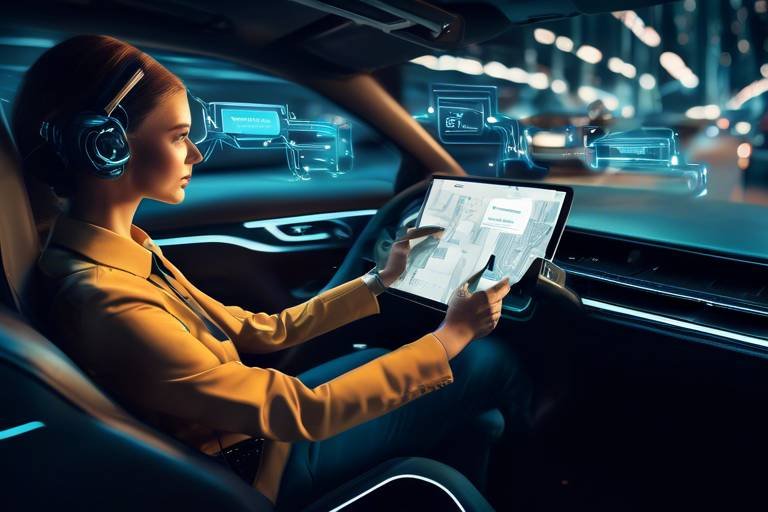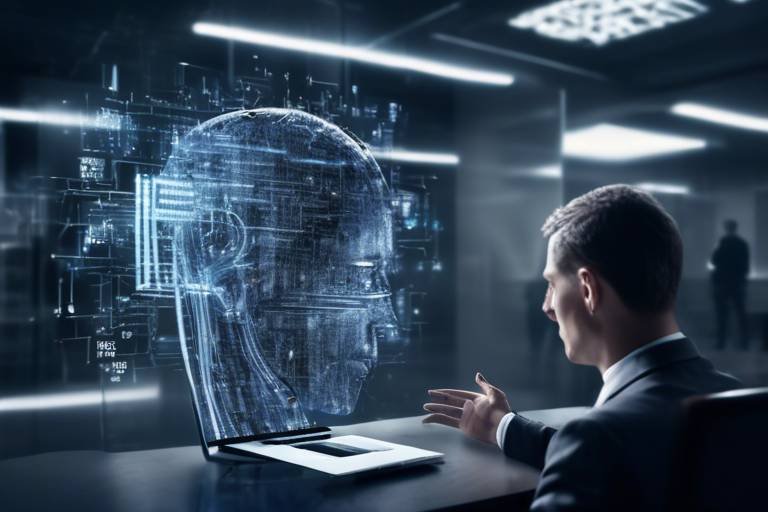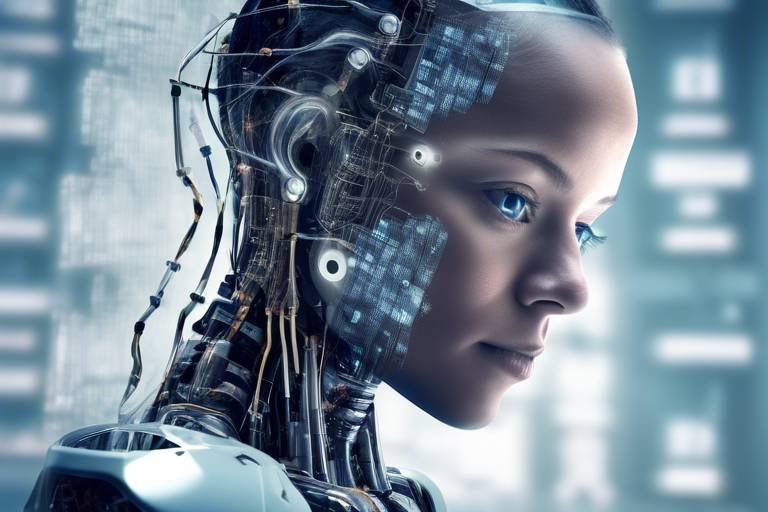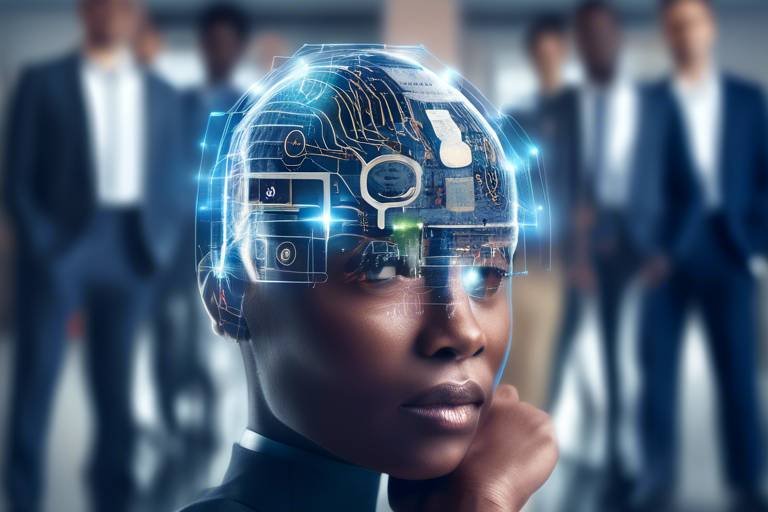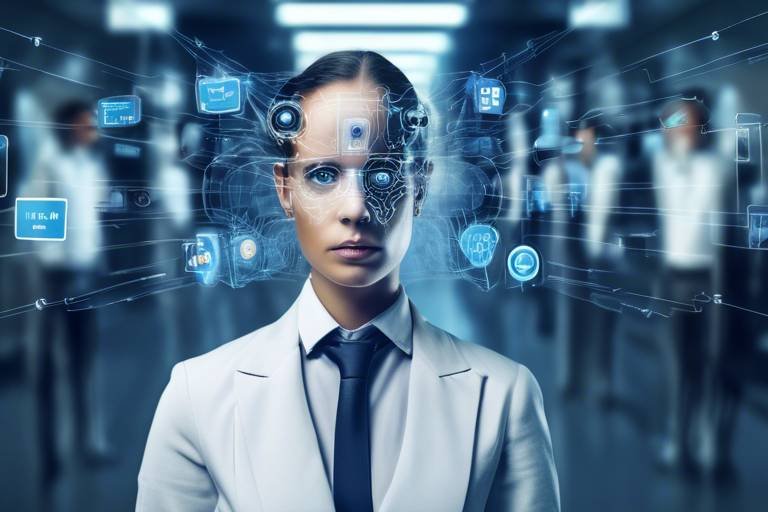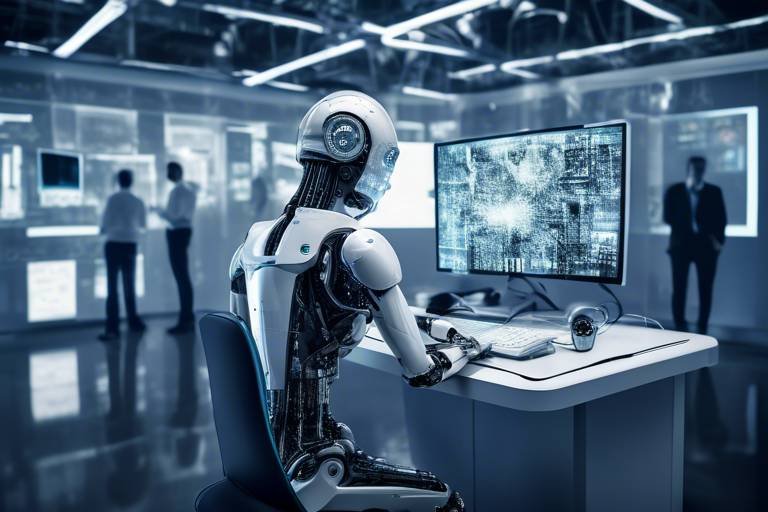AI and Future Work Perceptions: Evolving Mindsets
In today's rapidly changing landscape, artificial intelligence (AI) is not just a buzzword; it's a transformative force reshaping how we perceive work. Imagine stepping into an office where your assistant is a sophisticated AI that can analyze data faster than you can brew a cup of coffee. This is not science fiction—it's the new reality for many industries. As we navigate this exciting yet daunting terrain, it's essential to understand how AI is influencing our perceptions of work, our roles, and the very essence of what it means to be employed.
AI is revolutionizing the workplace, leading us to rethink traditional job structures and expectations. In the past, the notion of work was often tied to a specific location, time, and set of tasks. However, with AI's capabilities, roles are evolving, and so are the skills required to succeed. Workers are finding themselves in a landscape filled with opportunities that demand adaptability and a willingness to embrace change. The challenge lies not just in the technology itself but in our ability to shift our mindsets to harness its full potential.
As we delve deeper into this transformation, we must consider the implications for various industries. For instance, in sectors like manufacturing, AI-driven automation is streamlining production processes, leading to increased efficiency. However, this also raises questions about job displacement and the future of certain roles. Are we ready to accept that some tasks will be better handled by machines? Or will we cling to the traditional view of work, resisting the inevitable changes that AI brings?
The key to thriving in this new era lies in embracing a mindset of collaboration between humans and machines. Rather than viewing AI as a competitor, we should see it as a partner that can enhance our productivity and creativity. This shift in perspective is crucial for fostering innovation and driving success in the workplace. When we begin to view AI as an extension of our capabilities, we open ourselves up to a world of possibilities.
Moreover, the integration of AI into our daily work life compels us to rethink what skills are vital for the future. As technology evolves, so too must our skill sets. Digital literacy is no longer a luxury; it's a necessity. Workers must become proficient in using AI tools and platforms to remain competitive. This means that continuous learning is not just encouraged; it's essential. Imagine a world where learning is a constant journey, where employees regularly update their knowledge to keep pace with technological advancements. This is the future we are heading towards.
In summary, the rise of AI is not merely a technological shift; it is a profound change in how we perceive work itself. It challenges us to rethink our roles, adapt to new skills, and embrace lifelong learning. As we move forward, let us welcome this evolution with open arms, recognizing that the future of work is not just about machines; it's about enhancing our human potential.
- How is AI changing job roles? AI is automating routine tasks, allowing employees to focus on more strategic and creative aspects of their jobs.
- What skills are essential in an AI-driven job market? Skills like digital literacy, adaptability, and continuous learning are crucial for staying competitive.
- Will AI lead to job displacement? While AI may automate certain tasks, organizations can mitigate displacement through reskilling and transition programs.
- How can employees collaborate effectively with AI? By embracing AI as a partner and enhancing their skills, employees can increase productivity and innovation.

The Impact of AI on Job Roles
As we dive into the world of artificial intelligence, it's essential to understand how it is transforming traditional job roles. Imagine walking into an office where mundane tasks are handled by machines, allowing employees to unleash their creativity and strategic thinking. This shift is not just a trend; it's a revolution that is reshaping the fabric of various sectors. With AI technologies advancing at breakneck speed, the job landscape is evolving, presenting both new opportunities and challenges for workers.
One of the most significant impacts of AI is the automation of repetitive tasks. For example, in industries like manufacturing, AI-powered robots can handle assembly lines with precision, reducing human error and increasing efficiency. This automation frees up human workers to focus on more complex tasks that require critical thinking and emotional intelligence—qualities that machines cannot replicate. As a result, employees are encouraged to develop a more dynamic skill set that includes problem-solving and creativity.
However, this transformation also brings challenges. Workers must now adapt to a rapidly changing environment where their roles may shift dramatically. For instance, roles that were once considered secure may become obsolete as AI takes over. This reality necessitates a mindset of adaptability. Workers who embrace change and are willing to learn new skills will find themselves at the forefront of this AI-driven workforce.
To illustrate the evolving job roles due to AI, consider the following table that highlights some traditional roles and their AI-enhanced counterparts:
| Traditional Role | AI-Enhanced Role | Skills Required |
|---|---|---|
| Data Entry Clerk | Data Analyst | Analytical thinking, data interpretation |
| Customer Service Representative | Customer Experience Manager | Emotional intelligence, strategic planning |
| Manufacturing Worker | Process Improvement Specialist | Problem-solving, continuous improvement |
As we can see, the rise of AI is not merely about replacing jobs; it's about redefining them. Workers are encouraged to shift their focus from mundane tasks to roles that require higher cognitive skills and emotional intelligence. This evolution fosters a culture of innovation and collaboration, where humans and machines work hand in hand to achieve greater outcomes.
In conclusion, the impact of AI on job roles is profound and multifaceted. While it poses challenges, it also opens doors to exciting new opportunities. The key takeaway here is that adaptability is essential. Workers who are willing to embrace change and enhance their skills will not only survive but thrive in this new era of work. So, are you ready to adapt and seize the opportunities that AI presents?
- Will AI take away my job? While AI may automate some tasks, it also creates new roles that require human skills such as creativity and problem-solving.
- What skills should I develop to stay relevant in an AI-driven job market? Focus on developing digital literacy, emotional intelligence, and adaptability to thrive in the changing landscape.
- How can I prepare for the future of work? Commit to lifelong learning and continuously update your skills to keep pace with technological advancements.
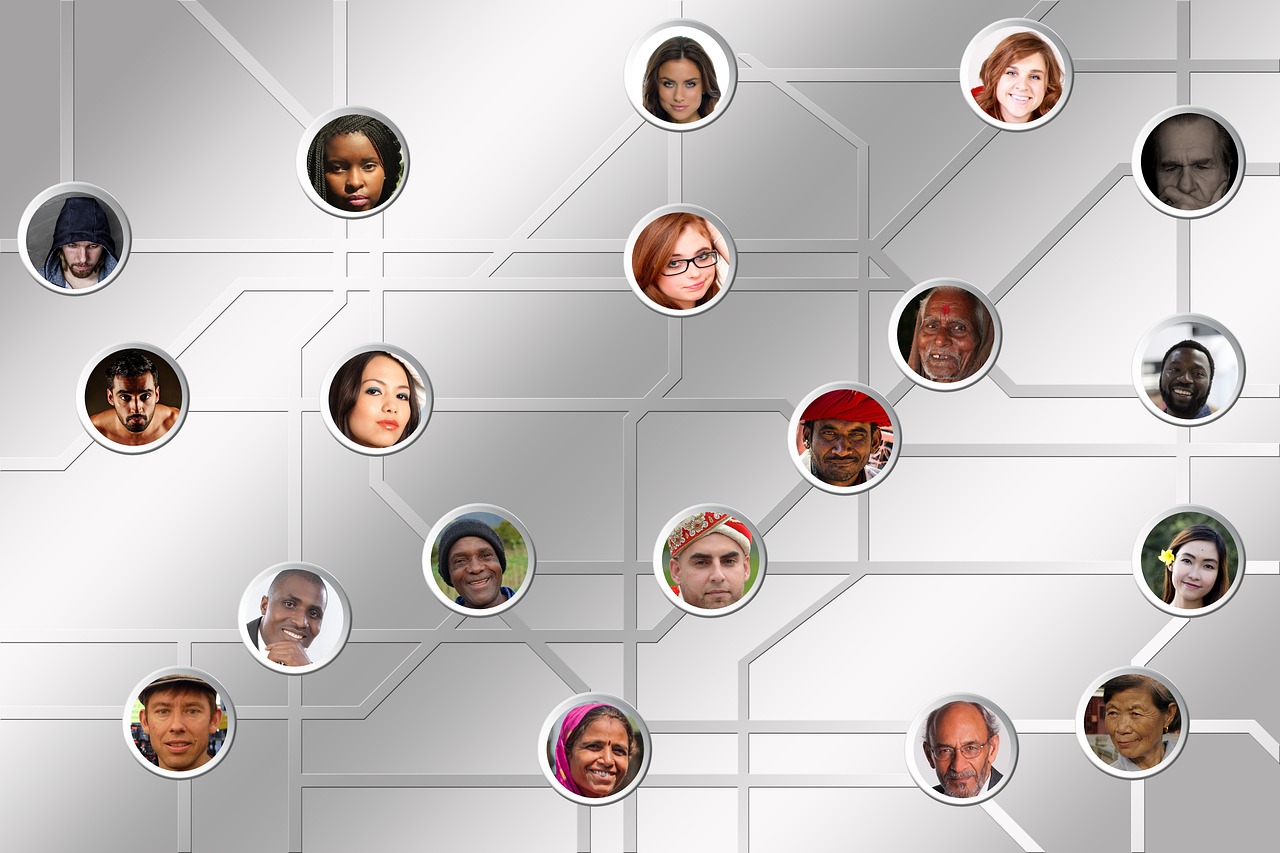
Changing Employee Mindsets
The integration of artificial intelligence (AI) in the workplace is not just a technological shift; it's a profound transformation in how employees perceive their roles and responsibilities. As AI continues to evolve, it reshapes the traditional workplace dynamics, fostering a new mindset among workers. This shift encourages a collaborative spirit between humans and machines, ultimately enhancing productivity and innovation. But what does this really mean for the average employee? It means that rather than viewing AI as a threat, many are beginning to see it as a powerful ally.
Imagine a world where mundane tasks are handled by intelligent systems, freeing up human workers to engage in more strategic and creative endeavors. This is not a distant future; it’s happening now. Employees are increasingly recognizing the benefits that AI brings to their daily tasks. For instance, instead of spending hours on data entry or administrative duties, they can focus on brainstorming innovative ideas or improving customer relationships. This shift not only boosts morale but also enhances job satisfaction, as workers feel they are contributing in more meaningful ways.
Moreover, the perception of job security is also evolving. While some fear that AI might replace their jobs, others are realizing that these technologies can augment their capabilities. The key lies in adaptability. Employees are now encouraged to develop a mindset that embraces change, viewing AI as a tool that can enhance their skills rather than diminish their roles. This cultural shift is essential for organizations aiming to thrive in an AI-driven landscape.
As we navigate this new terrain, it’s crucial for organizations to support their employees in this transition. Providing training programs that focus on collaboration with AI technologies can help workers feel more confident and competent in their roles. They can learn how to leverage AI tools to optimize their workflows, thus fostering a culture of continuous improvement and innovation. By doing so, companies not only enhance their productivity but also cultivate a workforce that is resilient and forward-thinking.
Interestingly, this change in mindset is not limited to individual employees. Team dynamics are also evolving. Collaborative projects now often involve AI tools that enable teams to work more efficiently. For example, project management software powered by AI can analyze workloads, predict project timelines, and even suggest optimal team compositions based on individual strengths. This collaborative approach encourages a sense of unity and shared purpose, as employees work together with AI to achieve common goals.
In conclusion, the integration of AI in the workplace is reshaping employee mindsets in profound ways. By fostering a culture of collaboration, adaptability, and continuous learning, organizations can ensure that their workforce is prepared for the future. The key takeaway? Embracing AI not only enhances productivity but also enriches the work experience, making it more fulfilling and meaningful for everyone involved.
- How can employees adapt to AI in the workplace? Employees can adapt by embracing continuous learning and seeking training opportunities to understand AI tools better.
- Will AI take away jobs? While AI may automate certain tasks, it also creates new roles and opportunities for employees to engage in more meaningful work.
- What skills are important in an AI-driven workplace? Skills such as digital literacy, adaptability, and collaboration are crucial for thriving in an AI-enhanced environment.

Embracing Automation
In today's fast-paced world, the concept of automation is no longer just a buzzword; it's becoming a vital part of how we work. Workers are increasingly recognizing the benefits of automation, which can streamline processes and reduce repetitive tasks. Imagine having a personal assistant that takes care of mundane chores, allowing you to focus on the creative and strategic aspects of your job. Sounds appealing, right? That's exactly what automation is doing for many professionals across various industries.
As we embrace automation, it's essential to understand that it's not about replacing human workers but rather enhancing their capabilities. Think of automation as a powerful tool—like a high-tech Swiss Army knife—that equips employees to tackle more complex challenges. By taking over routine tasks, automation frees up valuable time and mental energy, enabling workers to innovate and think outside the box. This shift in focus can lead to increased job satisfaction, as employees engage in work that is more fulfilling and aligned with their skills.
However, the transition to an automated workplace isn't without its challenges. Some employees may initially feel apprehensive about automation, fearing that it could render their roles obsolete. To address these concerns, organizations must foster an environment that encourages open dialogue about automation's role in the workplace. Here are some critical points to consider:
- Education and Training: Providing training on how to effectively use automated tools can help employees feel more comfortable and empowered.
- Highlighting Success Stories: Sharing examples of how automation has positively impacted teams can alleviate fears and demonstrate its value.
- Encouraging Feedback: Allowing employees to voice their concerns and suggestions fosters a culture of collaboration and trust.
As we look to the future, embracing automation will be crucial for both employees and organizations. By adapting to these technological advancements, workers can position themselves as invaluable assets, ready to tackle the challenges of tomorrow. The key lies in viewing automation not as a threat but as an opportunity—a chance to elevate our work experience and unlock new potential.
Q: Will automation take away my job?
A: While automation may change the nature of some jobs, it often enhances roles rather than eliminates them. Many tasks will be automated, allowing employees to focus on more strategic and creative responsibilities.
Q: How can I prepare for an automated workplace?
A: Embrace continuous learning and develop skills that complement automation, such as digital literacy and adaptability. Staying updated with industry trends will also help you remain competitive.
Q: What are some examples of automation in the workplace?
A: Common examples include chatbots for customer service, automated scheduling tools, and software that manages inventory or data entry tasks.
Q: How can organizations support employees during the transition to automation?
A: Organizations can provide training programs, create a supportive culture that encourages feedback, and highlight the positive impacts of automation through success stories.

Skills for the Future
As we navigate the rapidly changing landscape of work influenced by artificial intelligence, the demand for new skills is becoming increasingly evident. In this AI-driven job market, traditional skills alone are no longer sufficient. Employees must embrace a mindset of continuous improvement and adaptability to thrive in their careers. This means that developing digital literacy is no longer optional; it’s a necessity. The ability to understand and leverage AI tools will set individuals apart in a crowded job market.
Moreover, the future of work is not just about technical skills. Soft skills such as critical thinking, creativity, and emotional intelligence will play a pivotal role in how employees interact with AI and with each other. For instance, while AI can analyze data and provide insights, it is the human touch that will interpret these insights and apply them in a way that resonates with clients and colleagues alike. This collaboration between humans and machines is where the real magic happens—where innovation is born.
To illustrate the shift in required skills, let’s take a look at the following table that highlights some essential skills for the future:
| Skill Type | Examples | Importance |
|---|---|---|
| Technical Skills | Data Analysis, Programming, AI Management | High demand in tech-driven roles |
| Soft Skills | Communication, Teamwork, Problem-Solving | Essential for collaboration and leadership |
| Adaptability Skills | Learning Agility, Flexibility, Resilience | Crucial for navigating change |
As we can see, a blend of technical, soft, and adaptability skills is critical for future success. Organizations are increasingly looking for employees who can not only handle the tools of the trade but also adapt to new challenges and collaborate effectively with AI systems. This means that employees should actively seek opportunities for professional development, whether through formal education, online courses, or on-the-job training.
In conclusion, the future of work is a canvas that requires a diverse palette of skills. By investing in both hard and soft skills, employees can ensure they remain relevant in an ever-evolving job landscape. The journey towards skill enhancement is ongoing, and with the right mindset and resources, anyone can paint their own success story in this AI-enhanced world.
- What are the most important skills to develop for the future?
Technical skills like data analysis and programming, along with soft skills such as communication and adaptability, are crucial. - How can I improve my digital literacy?
Consider taking online courses, attending workshops, or engaging in self-study to enhance your understanding of digital tools. - Why are soft skills important in an AI-driven workplace?
Soft skills facilitate collaboration and effective communication, which are essential for working alongside AI systems and other team members. - Is lifelong learning necessary in today’s job market?
Absolutely! Lifelong learning helps you stay competitive and relevant as technologies and job requirements evolve.

Continuous Learning
In today's fast-paced world, where artificial intelligence is rapidly evolving, the concept of has become not just a buzzword, but a necessity for workers in every industry. Imagine trying to navigate a bustling city without a map; that's what it feels like to work in an AI-enhanced environment without the latest skills. As technology advances, the skills that were once sufficient may quickly become outdated, leaving employees scrambling to catch up. That's why embracing a mindset of lifelong learning is crucial for anyone looking to thrive in this new landscape.
So, what does continuous learning look like in practice? It involves not only formal education but also a commitment to personal development. Workers should actively seek out opportunities to expand their knowledge and skills, whether through online courses, workshops, or simply engaging in discussions with colleagues. The beauty of continuous learning is that it can take many forms, from structured programs to informal learning experiences. For instance, consider the following:
- Online Courses: Platforms like Coursera and Udacity offer a plethora of courses tailored to the latest technologies and skills.
- Networking: Engaging with industry professionals can provide insights and knowledge that formal education may not cover.
- Mentorship: Seeking guidance from more experienced colleagues can accelerate your learning curve.
Moreover, organizations themselves play a pivotal role in fostering a culture of continuous learning. Companies that prioritize employee development not only enhance their workforce's capabilities but also create a more engaged and motivated team. They can implement initiatives such as:
| Learning Initiative | Description |
|---|---|
| Workshops and Seminars | Regular sessions focusing on emerging technologies and skills. |
| Tuition Reimbursement | Financial support for employees pursuing further education. |
| Flexible Learning Hours | Allowing employees to dedicate time during work hours for learning. |
Ultimately, continuous learning is about cultivating an adaptive mindset. It's about viewing challenges as opportunities for growth rather than obstacles. Just as a plant needs sunlight and water to thrive, employees need ongoing education and support to flourish in an AI-driven world. By embracing continuous learning, individuals not only enhance their own career prospects but also contribute to a more innovative and resilient workforce.
Q: Why is continuous learning important in the age of AI?
A: Continuous learning is essential because AI technologies are evolving rapidly, and the skills needed for various job roles are changing. Staying updated ensures that employees remain competitive and relevant in the job market.
Q: How can I incorporate continuous learning into my daily routine?
A: You can set aside time each week for online courses, attend workshops, or even read industry-related articles. Engaging with peers and mentors can also enhance your learning experience.
Q: What role do organizations play in promoting continuous learning?
A: Organizations can create a culture of learning by offering training programs, providing resources for education, and encouraging employees to pursue personal development.
Q: What are some effective resources for continuous learning?
A: There are many resources available, including online platforms like Coursera, Udemy, and LinkedIn Learning, as well as professional organizations that offer certifications and workshops.

Collaboration with AI
As we step into an era dominated by artificial intelligence, the way we view our roles in the workplace is undergoing a dramatic transformation. Imagine a world where AI isn't just a tool but a collaborative partner, enhancing our capabilities rather than replacing them. This shift in perspective is crucial as it allows employees to harness the power of AI to elevate their work. When we think about collaboration with AI, we often picture robots taking over tasks, but in reality, it's about synergy. It’s about humans and machines working together to achieve outcomes that neither could accomplish alone.
In many industries, AI is already being integrated into workflows, allowing employees to focus on more complex, creative, and strategic tasks. For instance, in fields like marketing, AI algorithms analyze vast amounts of data to predict consumer behavior, enabling marketers to tailor their campaigns effectively. This partnership not only boosts productivity but also fosters a culture of innovation, where employees can experiment and explore new ideas without the burden of mundane tasks weighing them down.
However, collaboration with AI requires a shift in mindset. Employees must embrace the notion that AI is here to augment their skills, not diminish their value. This means being open to learning how to work alongside AI systems, understanding their capabilities, and leveraging them to improve efficiency. Organizations can facilitate this transition by providing training programs that focus on AI literacy, ensuring that employees feel confident in using these technologies. For example, consider a team of customer service representatives who utilize AI chatbots to handle routine inquiries. This allows them to devote more time to complex customer issues, fostering deeper relationships and enhancing customer satisfaction.
Furthermore, as we look to the future, it's essential to establish clear communication channels between human workers and AI systems. This can be achieved through regular feedback loops, where employees share their experiences and insights on how AI tools are impacting their work. Organizations can implement a framework to assess the effectiveness of AI integration, ensuring that it aligns with employee needs and enhances overall productivity. A table summarizing the benefits of collaboration between humans and AI might look like this:
| Benefit | Description |
|---|---|
| Increased Efficiency | AI handles repetitive tasks, allowing employees to focus on strategic initiatives. |
| Enhanced Creativity | With mundane tasks automated, employees can brainstorm and innovate more freely. |
| Better Decision Making | AI provides data-driven insights, aiding employees in making informed choices. |
| Stronger Collaboration | AI tools facilitate teamwork by streamlining communication and project management. |
In conclusion, collaboration with AI represents a paradigm shift in the workplace. By embracing this change, employees can transform their roles, enhance their productivity, and contribute to a more innovative and agile work environment. The future is not about competing with machines; it's about working alongside them to create a more efficient and fulfilling workplace.
- How can I prepare for collaboration with AI in my job?
Start by learning about AI technologies relevant to your industry. Engage in training programs and seek opportunities to work with AI tools to gain hands-on experience.
- Will AI replace my job?
While AI may automate certain tasks, it is more likely to change job roles than eliminate them. Embracing AI can enhance your skills and make you more valuable in the workforce.
- What skills should I develop for the future workplace?
Focus on developing digital literacy, adaptability, and critical thinking skills. These competencies will help you thrive in an AI-driven environment.

Ethical Considerations of AI in Workplaces
As artificial intelligence continues to weave itself into the fabric of our workplaces, it brings not only innovation but also a myriad of ethical dilemmas that demand our attention. One of the most pressing concerns is data privacy. With AI systems collecting and analyzing vast amounts of personal information, the question arises: how can organizations ensure that this data is handled responsibly? It's crucial for companies to implement robust data protection measures, ensuring that employees' privacy is respected while still leveraging the benefits of AI.
Another significant ethical consideration is job displacement. As AI automates routine tasks, many workers face the unsettling reality of potential job loss. This raises an important question: what responsibilities do organizations have to support their employees during these transitions? Companies should proactively develop reskilling and transition programs to help affected workers adapt to the changing job landscape. This not only demonstrates corporate responsibility but also fosters a culture of loyalty and trust within the organization.
Moreover, the implementation of AI systems must be approached with a commitment to fairness and transparency. Algorithms can inadvertently perpetuate biases, leading to unfair treatment of certain employee groups. To combat this, organizations need to ensure that their AI systems are regularly audited for bias and that decision-making processes are clear to all employees. Transparency in how AI-driven decisions are made can help build trust and alleviate concerns about unfair practices.
To illustrate the importance of these ethical considerations, let's take a look at a table that summarizes some key challenges and potential solutions:
| Ethical Challenge | Potential Solutions |
|---|---|
| Data Privacy | Implement strict data protection policies and regular audits. |
| Job Displacement | Develop reskilling programs and provide support for transitioning workers. |
| Bias in Algorithms | Conduct regular bias audits and ensure transparency in AI decision-making. |
In addition to these challenges, there are broader implications for workplace culture. As AI systems take on more responsibilities, the nature of human roles is evolving. Employees may find themselves collaborating with AI in ways that require a new understanding of their value within the organization. This shift necessitates an open dialogue about the ethical use of AI, ensuring that all voices are heard in the conversation about the future of work.
Ultimately, addressing these ethical considerations is not just about compliance; it's about fostering a workplace culture that prioritizes human dignity and fairness. As we navigate this new landscape, organizations must remain vigilant and proactive in their approach to AI, ensuring that technology serves to enhance the workplace rather than undermine it.
- What are the main ethical concerns regarding AI in the workplace?
Data privacy, job displacement, and algorithmic bias are the primary ethical concerns. - How can companies support employees facing job displacement due to AI?
Companies can implement reskilling programs and offer transition support to help employees adapt. - What measures can ensure fairness in AI decision-making?
Regular audits for bias and transparency in processes are essential for fair AI implementation.

Addressing Job Displacement
As we venture deeper into the age of artificial intelligence, the conversation surrounding job displacement has become increasingly urgent. Many workers are understandably concerned about the potential for AI to automate tasks traditionally performed by humans. However, it’s crucial to recognize that while some jobs may become obsolete, new opportunities are also emerging. The key lies in how organizations respond to these changes.
To tackle the issue of job displacement, companies must adopt proactive strategies that not only address the challenges but also empower their workforce. A multi-faceted approach is essential. Here are some critical steps organizations can take:
- Reskilling Programs: Organizations should invest in reskilling initiatives to help employees transition into new roles that AI cannot easily replicate. This may involve training in areas like data analysis, creative problem-solving, and emotional intelligence.
- Career Transition Support: Providing support for employees who may be displaced is vital. This could include career counseling, job placement services, and mentorship programs to guide them through their career transitions.
- Collaboration with Educational Institutions: Partnering with universities and vocational schools can help create tailored training programs that meet the evolving needs of the job market. This ensures that the workforce is equipped with the skills that are in demand.
Moreover, it’s important for companies to foster a culture of adaptability and innovation. Encouraging employees to embrace change and view AI as a tool for enhancement rather than a threat can significantly mitigate fears associated with job displacement. By promoting a mindset that values continuous learning and flexibility, organizations can help their employees navigate the uncertainties of an AI-driven landscape.
In addition, it’s essential to engage in open dialogues about the implications of AI on job roles. Transparency in how AI is being integrated into the workplace can alleviate concerns and foster a sense of trust. Employees who understand the rationale behind AI adoption are more likely to embrace the changes and see them as opportunities rather than obstacles.
In conclusion, addressing job displacement in the age of AI is not just about mitigating risks; it’s about seizing the opportunity to create a more skilled, resilient, and innovative workforce. Organizations that prioritize reskilling and support will not only protect their employees but also position themselves for long-term success in an ever-evolving job market.
- What is job displacement? Job displacement refers to the loss of jobs due to various factors, including technological advancements like AI that automate tasks previously performed by humans.
- How can companies help employees facing job displacement? Companies can implement reskilling programs, offer career transition support, and collaborate with educational institutions to provide relevant training.
- Is AI the only reason for job displacement? No, while AI is a significant factor, job displacement can also occur due to economic shifts, outsourcing, and changes in consumer behavior.
- What skills are most important for the future workforce? Skills such as digital literacy, emotional intelligence, creative problem-solving, and adaptability are becoming increasingly important in the AI-driven job market.

Ensuring Fairness and Transparency
As we delve deeper into the integration of artificial intelligence in workplaces, the significance of ensuring fairness and transparency cannot be overstated. Organizations are now at a crossroads where they must navigate the complexities of AI implementation while maintaining ethical standards. The algorithms that power AI systems often operate behind a veil of complexity, making it crucial for companies to establish clear guidelines and frameworks that promote accountability.
One of the primary concerns regarding AI is the potential for bias in decision-making processes. For instance, if an AI system is trained on historical data that reflects societal biases, it may inadvertently perpetuate these biases in hiring, promotions, or performance evaluations. This can lead to a lack of diversity and inequity within the workplace. Therefore, organizations must actively work to identify and mitigate these biases by employing diverse datasets and continuously monitoring outcomes.
Transparency is equally important. Employees should have a clear understanding of how AI systems operate and the criteria used in decision-making. This involves not only explaining the algorithms but also providing insights into the data that feeds these systems. When employees feel informed and involved, they are more likely to trust the technology and its outcomes. To foster this trust, companies can implement regular training sessions and workshops that educate staff about AI functionalities and its implications for their roles.
Moreover, establishing a feedback loop where employees can voice their concerns regarding AI decisions can enhance transparency. Organizations might consider creating a task force or committee dedicated to overseeing AI implementations and addressing any ethical dilemmas that arise. This committee could consist of a diverse group of employees from different departments, ensuring a range of perspectives and experiences are considered.
To illustrate the importance of fairness and transparency in AI, consider the following table:
| Aspect | Importance | Strategies for Implementation |
|---|---|---|
| Bias Mitigation | Prevents discrimination and promotes equity | Use diverse datasets; regularly audit AI outcomes |
| Transparency | Builds trust among employees | Educate staff on AI processes; share decision criteria |
| Feedback Mechanism | Encourages employee engagement and trust | Establish a task force for AI oversight |
In conclusion, as AI continues to evolve and permeate various aspects of the workplace, ensuring fairness and transparency will be vital for fostering a positive and inclusive work environment. Organizations that prioritize these principles will not only enhance employee trust but also pave the way for a more equitable future in the world of work.
- What is the role of AI in decision-making?
AI can assist in analyzing data and providing recommendations, but human oversight is essential to ensure ethical outcomes. - How can organizations ensure their AI systems are unbiased?
By using diverse datasets, conducting regular audits, and involving a varied group of employees in the development process. - Why is transparency important in AI?
Transparency builds trust among employees and helps them understand how decisions are made, reducing fear and resistance to AI. - What steps can employees take if they feel an AI decision is unfair?
Employees should utilize feedback mechanisms established by their organization to voice their concerns and seek clarification.

The Future of Work Culture
The landscape of work culture is undergoing a significant transformation, largely driven by the integration of artificial intelligence. As organizations embrace AI technologies, they are not just changing the way tasks are performed, but also reshaping the very essence of workplace culture. Imagine walking into an office where your AI assistant not only manages your calendar but also suggests the best times for collaboration based on team members' productivity patterns. This is not science fiction; it's the emerging reality of our work environment.
One of the most notable shifts is the promotion of flexibility. With AI tools enabling remote work, employees are no longer confined to traditional office spaces. This newfound freedom allows individuals to create their ideal work environments, whether that means working from a cozy home office or a bustling café. The flexibility is not just about location; it’s about time management as well. Many organizations are adopting flexible hours, allowing employees to work when they are most productive. This adaptability fosters a culture of trust and autonomy, empowering employees to take charge of their work-life balance.
Moreover, the rise of AI is prompting a greater focus on employee well-being. Companies are increasingly recognizing that a healthy work culture is essential for sustained productivity. AI can play a vital role in this aspect by analyzing employee data to identify stress levels and workload imbalances. For instance, AI-driven platforms can suggest breaks or wellness activities tailored to individual needs, promoting a healthier work environment. This proactive approach not only enhances employee satisfaction but also reduces burnout, a growing concern in today’s fast-paced work culture.
As organizations adapt to these changes, they are also prioritizing collaboration between humans and AI. The future workplace will likely be characterized by teams that leverage AI to enhance their capabilities rather than replace them. This collaboration requires a cultural shift where employees view AI as a partner in their work rather than a competitor. It’s about creating a synergy where human creativity and AI efficiency combine to drive innovation. For example, in creative industries, AI tools can assist in generating ideas or analyzing trends, allowing employees to focus on the more nuanced aspects of their projects.
However, as we embrace these advancements, it’s crucial to maintain a human touch in our work culture. Despite the efficiency that AI brings, the importance of interpersonal relationships and emotional intelligence cannot be overstated. Companies must strive to create environments where employees feel valued and connected, even in a tech-driven landscape. This balance between technology and humanity will be key to fostering a thriving work culture that attracts and retains top talent.
In summary, the future of work culture is poised to be more flexible, collaborative, and focused on well-being. Organizations that embrace these changes and prioritize a harmonious relationship between AI and employees will not only enhance productivity but also create a more fulfilling work environment. As we move forward, it’s essential to keep the conversation going about how to best integrate AI into our workplaces while preserving the core values of human connection and creativity.
- What is the role of AI in shaping future work culture? AI is transforming work culture by promoting flexibility, enhancing collaboration, and focusing on employee well-being.
- How can companies ensure a healthy work-life balance with AI? By adopting flexible hours and remote work policies, companies can allow employees to manage their time effectively.
- What are the benefits of collaboration between humans and AI? This collaboration can lead to increased innovation, efficiency, and the ability to focus on more strategic tasks.
- How can organizations maintain a human touch in a tech-driven environment? Companies must prioritize interpersonal relationships and emotional intelligence to foster a connected workplace.
Frequently Asked Questions
- How is AI impacting job roles in various industries?
AI is revolutionizing job roles by automating repetitive tasks and enhancing efficiency. This transformation creates new opportunities while also posing challenges, as employees must adapt to changing responsibilities and expectations. As a result, adaptability and a willingness to learn new skills are becoming essential for success in the workforce.
- What mindset shifts are employees experiencing with AI integration?
Employees are beginning to see AI as a collaborative partner rather than a threat. This shift fosters a mindset of teamwork between humans and machines, where the focus is on leveraging AI to boost productivity and drive innovation. Many workers now recognize that AI can handle mundane tasks, allowing them to engage in more strategic and creative work.
- What skills will be most important in an AI-driven job market?
In an AI-driven job market, skills such as digital literacy, adaptability, and critical thinking will be crucial. Employees must be proactive in developing their skill sets to remain competitive. Continuous learning and upskilling are vital as technology evolves, ensuring that workers can effectively collaborate with AI systems and leverage their capabilities.
- How can employees commit to continuous learning in the workplace?
Employees can commit to continuous learning by seeking out training programs, attending workshops, and engaging in online courses. Organizations can support this journey by providing resources and opportunities for professional development. Embracing a culture of learning helps employees stay ahead in an ever-changing work environment influenced by AI.
- What ethical considerations arise with the use of AI in workplaces?
The rise of AI brings several ethical dilemmas, including concerns about data privacy, potential job displacement, and fairness in decision-making. It is essential for organizations to engage in discussions about responsible AI use, ensuring that algorithms are transparent and do not perpetuate existing biases.
- How can organizations address job displacement due to AI?
Organizations can address job displacement by implementing reskilling and transition programs for affected employees. By providing training in new skills and facilitating career shifts, companies can support their workforce in adapting to the changes brought about by AI, minimizing the negative impacts of automation.
- What are the implications of AI on workplace culture?
AI is influencing workplace culture by promoting flexibility, remote work, and a focus on employee well-being. As organizations adapt to these new realities, they are increasingly prioritizing a healthy work-life balance and creating environments that foster collaboration and innovation among employees and AI systems alike.

